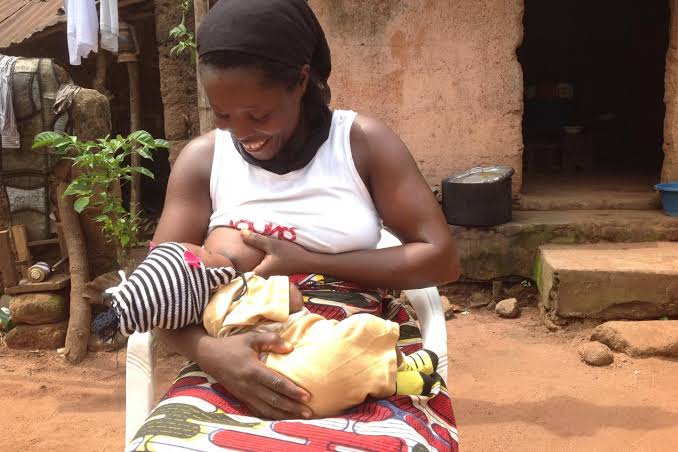Nursing mothers whose babies are unable to display social smile during breastfeeding should be worried, a Consultant Paediatric Haematologist and Oncologist at the Lagos University Teaching Hospital, Idi-Araba, Prof. Edamisan Temiye, has said.
Prof. Temiye said a baby is supposed to have a social smile at two months, and that a baby’s inability to smile during this period is an indication of a developmental problem.
According to him, it could be a sign of autism or cerebral palsy, adding, however, that the commonest cause of cerebral palsy is birth asphyxia.
Temiye said the causes of cerebral palsy may be genetic but that they are mostly caused by environmental factors.
Experts say smiling is good for a baby and the mother because smiles are the first building blocks of warm, loving and responsive relationships.
“Through these relationships, babies and children learn how to think, understand, communicate, and show emotions. Giving and receiving smiles are the first steps your child takes in learning how to be social and have good relationships.
“Smiling at your baby is great for your early relationship with your baby. It helps you bond with your baby, and it helps your baby feel secure and safe”, online portal, Raising Children Network, stated.
According to Temiye, “Mothers should worry about the development of their babies when they are not showing affection such as smiling during breastfeeding at the age of two months.
“By one and a half months, that is when we start noticing there is a problem with a baby. The baby is supposed to smile and have a social smile.
“By six weeks of life, a baby is expected to smile when the mother is breastfeeding him or her. If the baby is not having a social smile and outward affection at this age, it means there is a problem with the brain.
“If by nine months, the baby is not crawling, there is a big problem and the parents should see a doctor.”
The pediatrician described cerebral palsy as “an assault” on the brain, adding that it could be caused by infection during birth or after birth.
On how mismanaged birth asphyxia can cause cerebral palsy, Prof. Temiye said, “Birth asphyxia happens when the oxygen supply to the baby is cut off either before birth or immediately after birth, and if the baby was not properly resuscitated, it can lead to brain damage.
“Sometimes, you will see some babies growing very normally from six months to nine months, and then suddenly they no longer smile, crawl or walk.
“This often means that the development has been arrested because there is something wrong with the brain.
“If it is not diagnosed and treated well, it can lead to cerebral palsy. Any assault to a developing brain leading to damage and causing the brain not to develop normally is cerebral palsy.”
The Centers for Disease Control and Prevention says that most babies give a real, non-reflexive smile when they are about two months.


